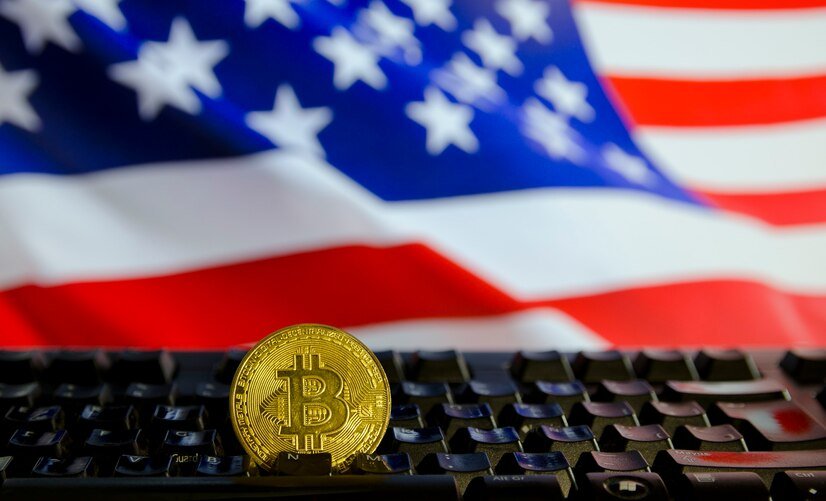Bridging the Gap Between Regulation and Innovation
It is where this juncture manifests that there is perhaps one of the most talked about questions: cryptocurrency and government oversight. Recent reports suggest that the U.S. government is about to meet with key leaders in cryptocurrency. They believe this will mark the point in which the current paradigm of regulation is set to shift, as the government embarks on efforts toward balancing the development of innovation with securing financial stability. Here’s a closer look at what this means.
A New Chapter in Crypto Regulation
On the other hand, cryptocurrencies are seen as an achievement of great ingenuity and everything revolutionary, yet the same industry has also been deemed full of risks and evocation of filth, money laundering concerns, and more notably market volatility that regulators seemed incapable of keeping up with, hence the reported meeting with a key crypto figure would be a turning point as it indicates a more direct engagement by the government.
Such dialogue is essential if the United States is to stake its claim on being a world leader within the crypto economy. Previous regulations and measures took the form of either inappropriate restrictions or too vague, moving between creating false certainty for investors and related business interests. A co-consultative approach might open up to more structured regulations with a fruitful balance in how they weigh regulation with the freedom to innovate.
Who Could Be the Key Crypto Figure?
Despite the identity, however, several high-profile leaders come to mind. Names like Coinbase CEO Brian Armstrong, co-founder at Ethereum Vitalik Buterin, and Binance CEO Changpeng Zhao dominated the crypto conversations. Each one brings something unique: clear regulatory guidelines from Armstrong, decentralized ecosystems through Buterin, and global adoption of crypto through Zhao.
Much is going to depend on the choice of interlocutor by the government, which is likely to reflect what it prioritizes. So, if the latter is oriented towards decentralized finance, then a Buterin is likely to be the obvious choice. For regulated exchange and compliance discussions, perhaps Armstrong or Zhao will prove crucial. Whomever it is, their influence will determine much of what eventually gets done here.
Key Topics Likely to Dominate the Agenda
This meeting is likely to discuss most of the important issues that have arisen in the crypto space. Some of these include regulated clarity, tax policies, and even a call for consumer protection.
1. Regulatory Framework
The problem of a lack of a unified regulatory framework in the U.S. dates back to long ago. Multiple federal and state regulations by businesses do create inefficient business practices and legal challenges. Consideration of a dialogue with a key industry leader can bring perspectives closer together as a starting point for comprehensive legislation.
2. Stablecoins and CBDCs
One would expect stablecoins and Central Bank Digital Currencies to feature front and center in the discussions. Stablecoins like USDC and Tether have now become emblematic of the crypto environment but are placed under tremendous scrutiny regarding their reserves and stability. If a digital dollar has been taken seriously by the US Federal Reserve, then observations from this crypto personality can only prove an instrumental input to these ventures.
3. Combatting Illicit Activities
Permanently, the crypto space has been accused of being a haven for illegal transactions. The government may also consult on how transparency can be enhanced without affecting the tradition of being decentralized. The blockchain analytics firms and the trade may engage in developing remedies that balance the act between security and secrecy.
4. Taxation and Reporting
Another field where tax compliances come into the scene is the IRS being spotted to tighten crypto tax reporting. There is still ambiguity in that regard. Cooperation may lead to more defined regulations to the benefit of both the Government and taxpayers.
The Significance of This Engagement
This meeting is not in itself inconsequential. It indicates that the government’s orientation about cryptocurrency has shifted from being a threat to being hammered on the economy towards a transforming technology that requires ingenuity in its treatment. This does, too, reflect the crypto industry’s growing clout sector now valued at over $1 trillion and kicking into many corners of global finance and technology.
For the U.S., this meeting can further entrench its role as a leader that will help shape the future of digital finance. Neither the European Union nor China has been shy about being proactive in their regulatory approaches. The U.S. can quickly find itself out of this leadership role unless it plays its cards smartly. Yet, the meeting remains an important step toward innovation that is sure to flourish while economic interests remain safe.
Challenges and Potential Outcomes
This is a step forward for this conversation, but many challenges lie ahead. Sides will have to work through numerous contentious issues-ranging from environmental issues surrounding crypto mining to decentralization and sovereignty questions. Divergent agendas may also muddy the waters.
For instance, the state may opt for a highly regulated environment to contain the bad risks, while the crypto sector may demand maximum independence. A compromise is thus likely to depend first on transparency, respect for mutual goals for the future of finance, and visions.
If successful, this meeting could lead to several key outcomes:
- Clearer Regulatory Guidelines: A roadmap for businesses to operate without fear of sudden crackdowns.
- Innovation-Friendly Policies: Encouraging startups and developers to innovate within a supportive framework.
- Stronger Consumer Protections: Measures to safeguard investors from fraud and market manipulation.
Conclusion: A Critical Moment for the Crypto Industry
Hence, the U.S. government is willing to prepare for an important crypto figure to mark a historical moment in the evolution of cryptocurrency regulation: being willing to engage with industry leaders instead of being tied into conflict.
Of course, the task is hard, but the reward is high. It can lead to economic growth, further inclusion in financial services, and a safe place for the United States as a leader in technological innovation. Upon the agreement of both parties to sit on the negotiation table, the world will be looking at it with discussions that are considered a basis for an even more inclusive, sustainable, and integrated cryptocurrency future.



